9 best plastic-free teabags
Most teabags contain plastic – who knew? About 96 per cent of teabags are made with polypropylene – a synthetic resin – which is added during the sealing process. Fortunately, there's such a thing as plastic-free teabags – and we've found some of the best.
Some plastic-free teabags are compostable. This means that they can decompose back into natural elements in your garden within a year. The compost is then great for fertilising the soil.
Others are biodegradable. These can also decompose back into natural elements, but it takes much longer for them to do so at home. Instead, you'd be better off throwing them out with your rubbish so that they can go through an industrial process.
Here’s our round-up of teabags that are free of plastic.
You can trust our independent reviews. We may earn commission from some of the retailers, but we never allow this to influence selections, which are formed from real-world testing and expert advice. This revenue helps us to fund journalism across The Independent.
We Are Tea, £2.49 for 15, Ocado
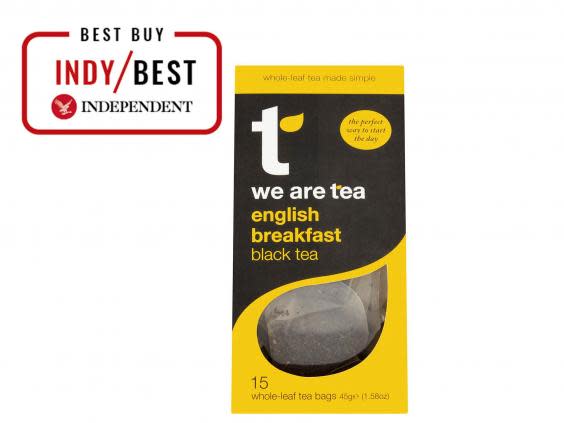
This whole-leaf tea company started in 2007, and were the first brand to remove the paper tags from teabags. In 2012, We Are Tea joined the Ethical Tea Partnership, supporting small estate growers and moved from nylon bags to ones made from a bi-product of cornstarch called soilon. Each teabag is sealed by ultrasound instead of glue, which makes them biodegradable at an industrial level between three and six months, so make sure you put them in your council food waste bin. It can go in your home compost, but it will take much longer (at least 18 months). The plastic inner part of the packaging is not recyclable, but the team are working on changing this and using natureflex, which is a woodpulp and takes between three to six months to decompose at home.
Eteaket, from £4.95 for 15

Eteaket is a cafe in Edinburgh, serving ethically sourced tea. A member of the Ethical Tea Partnership, it opened in 2008 and sells its own brews in teabags as well as loose leaf tea. The teabags are made from soilon, which isn’t bleached and is biodegradable. The tag is made from paper which isn't laminated and is attached to the string using ultrasound. From September, the inner packaging will be made from natureflex, which is also recyclable. This means it will be fine to put in the compost at home.
Nemi Tea, £5.99 for 15, Nemiteas.com
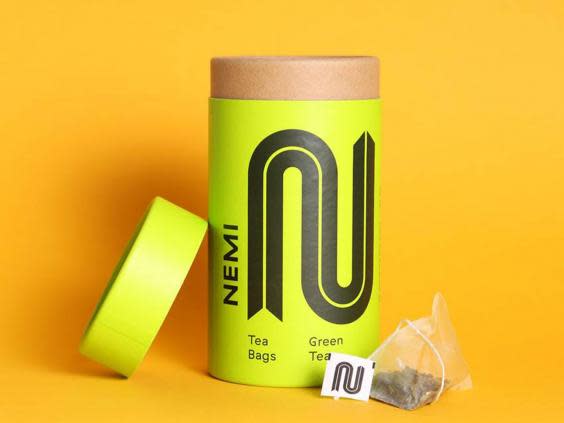
Nemi tea launched in October 2017. The pyramid bags are made from soilon. They are the only guaranteed GM-free ones on our list and are completely biodegradable at an industrial level. The string and labels are both attached using ultrasound rather than glue, and all the tea is packaged in naturflex. The brand also helps refugees integrate into the UK by employing them to run their tea stalls.
Roqberry, £6 for 18
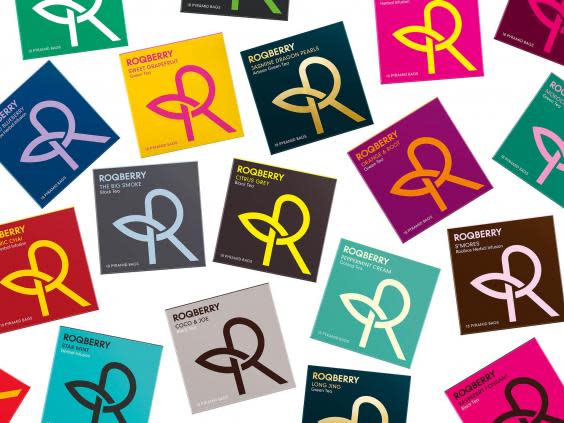
After launching last year, Roqberry champions “blending the rules” by using classic blends to create modern fusions such as “aromatic sushi and spice” and “black smoke”. These pyramid teabags, made from soilon, encase the single-source tea that comes in black, green, herbal, rooibos and oolong, and all are biodegradable. As it won’t breakdown in under a year, this teabag should be thrown out with your council food waste as soilon composes at industrial standards (in six to eight weeks). The cube boxes are made from FSC paper that’s easily recyclable, too.
Pukka Herbs, £2.50 for 20, Hollandandbarrett.com
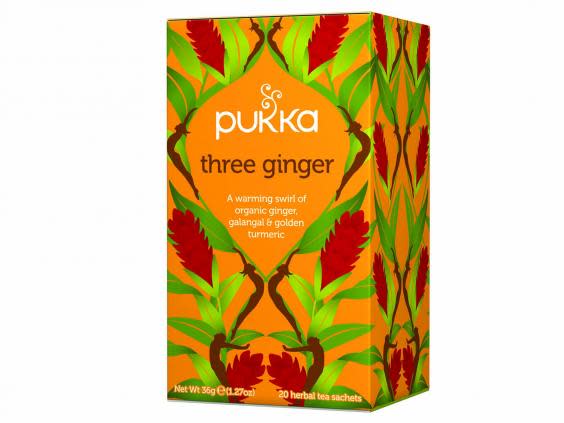
Pukka teas launched in 2001. Each bag is wrapped in an envelope so that it stays fresh – and is more environmentally friendly than you might think. Since May, it contains only a very thin layer of BPA and PVC-free plastic, so it can be recycled with paper. It took the team four years to develop the packaging, removing more than 100 tonnes of plastic from the supply chain. Look closely and you'll find that the organic string and plastic-free label are attached using a little stitch rather than a staple.
Teapigs, £3.99 for 15, Ocado.com
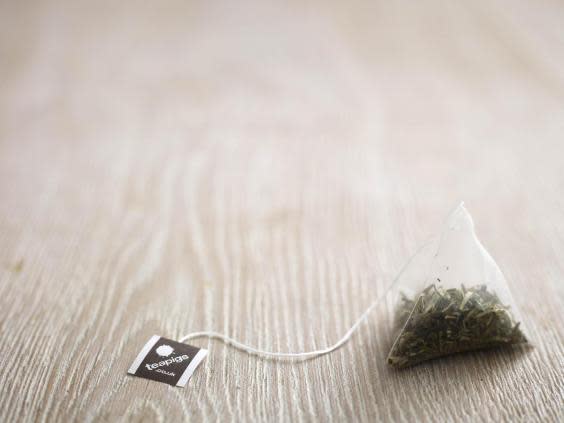
Teapigs was the first brand to receive the world’s first plastic-free trust mark, created by the campaign group A Plastic Planet in May. These biodegradable bags are made from cornstarch, while the paper tags use vegetable inks and are, you'll be glad to read, non-toxic. Don’t be dismayed when you open your box, as even the clear “plastic” inner bag (made from natureflex) is compostable. The bags can go in your home food recycling bin for compost, which may feel strange, but they will compost.
Good & Proper Tea, £5 for 15 teabags, Goodandpropertea.com
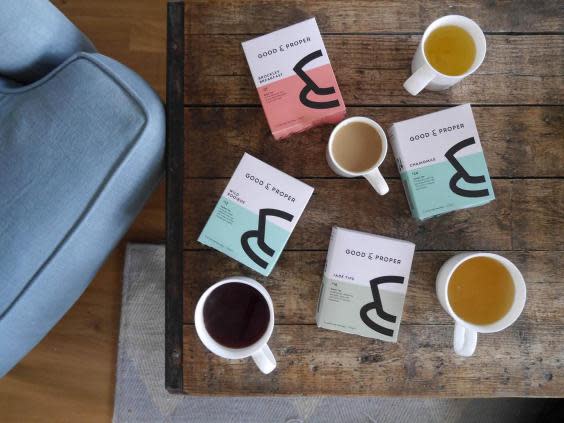
What began life as a mobile tea bar has now found a permanent home as a cafe in east London. The plastic-free range was added in 2017 and is made from the non-toxic material soilon, which should go in a collected food waste bin. They are the largest bags we tested and are the only one that comes in a flat, large, square shape, instead of a pyramid. Bags are packaged in a plastic alternative, the plant-based material Vegware, which is compostable, but at industrial levels.
T2, £7.50 for 25, T2tea.com

This Australian brand, launched in 1996 in Melbourne, reached the UK in 2014, establishing itself in east London. It now has 14 shops in the capital, and it takes its sustainability seriously. The opaque bags are made from cornstarch and are completely biodegradable in your council food waste. The bags will break down in home composting, but this can take 18 to 24 months, so it’s best to put them into your local council food compost, where the process will be faster. The inner plastic is not recyclable, but the brand is planning to switch this to a plant-based material by 2020. If you like your tea strong, add just the tiniest drop of milk to your cuppa with these bags as the flavour tends to come out quite weak.
Twinings loose leaf pyramid bag, £6.50 for 15, Twinings.co.uk

Twinings' pyramid teabags have always been plastic-free. They are made from maize starch treated by an enzyme that allows it to be spun into filaments. The teabags include loose-leaf tea, which makes an excellent brew. However, each bag has a label attached that’s covered in a thin layer of plastic – so it won’t dissolve if it ends up in your brew, apparently – and will need to be removed before composting. The inner foil wrapper isn’t recyclable, but Twinings is currently trying to find alternatives.
Verdict: Plastic free tea bags
We Are Tea came out top partly because the bags don't have a string or a label. We were also impressed by its efforts to source its tea as ethically as possible and its support for small tea-growing estates. The inner plastic bag isn’t recyclable, but the brand is working on changing it. We'd be proud to serve Teapigs, too – for its total lack of plastic and for its reliable taste.


